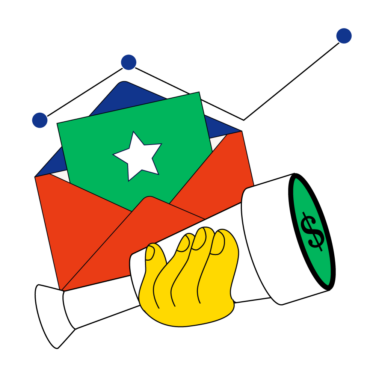When people have the right tools, they can do amazing things. This is as true for technology as it is for anything else — especially in the world of sales. There are a number of benefits to sales management software that can help sales managers, sales reps, and customers enhance the sales experience.
Whether it’s virtual sales tools with cloud-based software or mobile apps, sales management platforms offer solutions in real-time that save effort and money to improve your bottom line. Learn more about the benefits of sales management systems and decide which tool is the right choice for you when you read this breakdown.
Who Benefits From Sales Management Software?
Sales management processes already have a positive effect on every individual involved in the sales cycle. However, these platforms can also mature your sales processes, adapting and improving them to help your team achieve top sales performance.
There are three stakeholders who have something to gain from the implementation of sales management software. In addition to sales managers and salespeople, you have the customer. Discover what each of these key positions enjoy with the addition of sales management software to any sales workflow.
Sales Managers
Did you know that last year, 61% of salespeople said increasing sales manager effectiveness was a top priority for their organization? Well, sales management software can definitely help anyone who oversees, organizes, and strategizes for your sales team.
Visibility and scope are an essential part of the sales manager position, as they must be involved in planning and executing a variety of company-wide targets. With an effective management process that provides clarity on past metrics, future goals, and forecasted trends, they can drive the company further.
Salespeople
Over 75% of new leads go through the entire sales process with a salesperson. So how can you streamline and shorten this sales cycle for more efficiency? The answer is with sales management software that targets manual tasks and communications between a salesperson and their prospect.
Some of the best tools for salespeople are automations that remind them to follow up with prospects at the right time, templates that personalize emails and messages, and notifications that show them when a deal is at risk.
Customers
Your customers will definitely enjoy a better buying journey when sales management software ensures their salesperson is more engaged and attentive to their needs. When notes about client progress are centralized, any team member can pick up where somebody else left off without needing to review previous conversations with a client, enhancing customer relationships by making sure they feel heard.
Benefits Of Sales Management Software

So I’ve talked a little bit about who benefits from sales management CRM software, and I’ve provided some examples, but let’s dive a little bit deeper into all the ways this solution can help your organization with every business process.
1. Better Prioritization
Effective sales management means knowing which tasks are most important and delegating them to the right people for the job. Some tasks a manager must complete themselves, but others that can be delegated, like sending new leads to the right sales reps, require a deep understanding of your team and their skill set.
With sales management software, understanding the most important tasks at any moment is easier, as artificial intelligence works with you to organize and manage your task list. It can also generate new leads, filter and qualify leads, and notify you of cross-sell and upsell opportunities you may be missing to help everyone make more informed decisions.
2. Reducing Time Spent On Admin
Sales management systems are designed to keep your team focused on sales — not distracted by admin or data entry tasks. Any good sales management tool will help sales professionals improve their performance by identifying important moments and behaviors during calls, providing coaching post-communication, and flagging necessary action at any point during a deal.
Tracking the sales pipeline in this way prevents customers from falling through the cracks with active and timely communication from your customer support, sales, and marketing teams.
3. Record Customer History
While sales data is incredibly important, keeping track of customer information and communication history can be even more crucial to client conversion, retention, and renewal. With a customer’s entire interaction log recorded in one place, your entire team gets a comprehensive overview that allows every team member to engage with every client on a more personal level.
You also won’t waste any time covering old ground, shortening the sales cycle, ensuring a client feels like their needs are met, and improving the overall customer experience.
4. Comprehensive Integration

Your sales activities don’t happen in a vacuum, so your sales management software shouldn’t operate in one either. Comprehensive integrations with customer relationship management and social media management platforms mean everyone is sharing information and updating your repository of information in real-time to enhance sales strategy and help everyone close deals.
Some of the most popular integrations with sales management software include Salesforce, HubSpot, Gmail, MailChimp, and LinkedIn.
5. Better Analytics & Forecasting
Before the advent of artificial intelligence and business intelligence for report generation and sales forecasting, you might have been doing all this work manually. But with the help of sales management software, you can be pretty hands-off here.
Once you input your lead generation, conversion rate, and other sales goals, the system can assess your team performance and provide updates and actionable insights to improve the sales funnel, lead management, and pipeline management.
Some sales management tools even offer forecasting to analyze historical data and provide you with predictions of future market trends and changes to customer behavior so you can update sales strategies and continue to meet your quotas no matter what’s happening in your industry.
Final Thoughts
Some sales management tools blend sales CRM systems for an all-in-one platform that streamlines your tech stack and consolidates your solutions. Take a look at the list on our most recent breakdown of the top 10 sales management software options to explore functionalities, pricing, integrations, and usability.
You’ll find some platforms that target small business needs and others that provide enterprise-grade solutions. Sign up for the free trials to see how these platforms function in relation to your workflow to make your final choice.
Finally, if you ever want updates on the top technological solutions for any niche, you can subscribe to the RevOps newsletter for insights from the experts.


